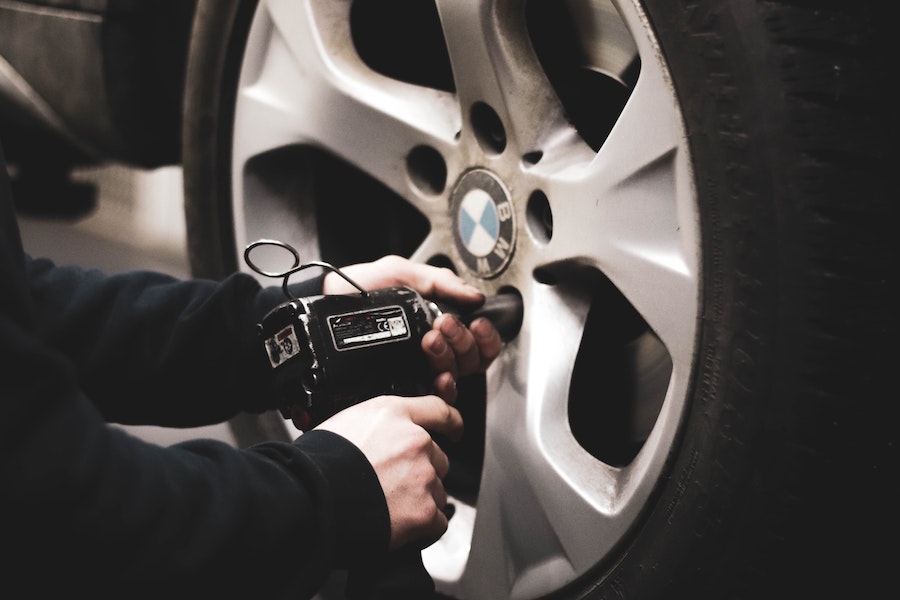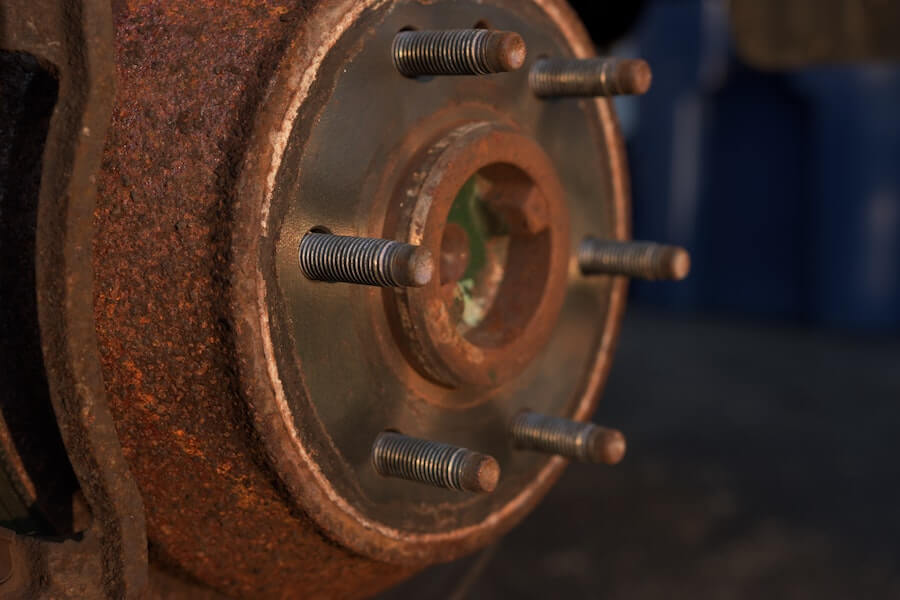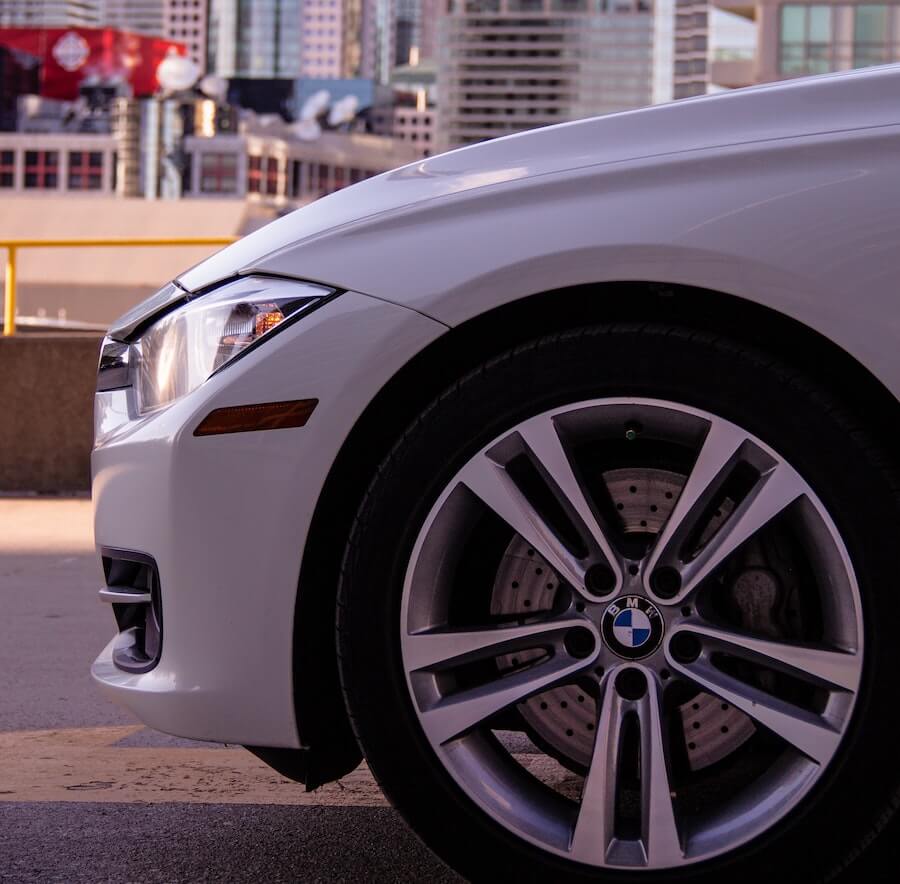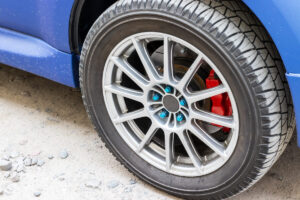Are you noticing something strange with your BMW brakes? Perhaps it’s a strange sound, or they’re not working as well as they once were. If you’ve thought about replacing them, you might be wondering if it’s the right time to make the move.
Your BMW brakes will need replacement after 30,000 to 70,000 miles depending on driving habits. You might also need new brake pads if your vehicle pulls to one side when you brake or if your brakes produce a squealing sound, burnt smelling odor, or vibrations.
In this article, I shall explain how each of these issues develop. I’ll also give you a few tips on how to make BMW brake pads last longer.
8 Signs That You Need To Replace Your BMW Brake Pads
There are a few signals that you’ll need to replace your car’s brake pads, including odd noises, vibrations, a sensor warning, or a burnt smelling odor when braking.
1. Metal Scraping Sound
When you hear a metallic scraping sound from your wheel area whenever you brake, your brakes are likely worn out and need to be replaced. The sound you hear will be a metallic screeching or squealing noise. It will indicate that the pads have become too thin and are in need of replacement.
Brake pads are made from a metallic base covered with friction material. When your BMW brake pads are worn too thin, the noise you hear originates from the brake rotor touching the metal parts exposed after the top layers have entirely worn off.
2. Brake Pad Sensor Warning
Today, brake pads have brake pad wear sensors. These sensors are designed to warn the driver that the brake pads need to be changed. BMW brake pad sensors are typically a loop of rubber wire embedded inside the brake pad.
As the brake pad wears down, it will eventually reach a point where it exposes the brake pad sensor. With continued use, friction causes the sensor’s wire to split, which breaks an electric circuit. Your Engine Control Unit (ECU) will detect this change and display a warning that your car’s brake pads are too old.
3. Vibrations in Steering Wheel
If you feel a vibration in your steering wheel or under your foot when you press down on the brake pedal, this could be a sign of worn out brake pads and warped brake rotors. The vibrations may be mild or erratic, depending on the state of your braking system.
You will also feel vibrations if the brake pads are clogged with dirt or oil. Dirty brake pads need replacement, too, because they might have a hard time gripping the rotor.

4. The Thickness of Brake Pads
You need to replace the brake pads on your BMW if they become too thin. You may be able to see the thickness of the brake pads through your vehicle’s wheel spokes, but often they can only be seen when the wheels have been taken off.
BMW brake pads are about 10 to 12 millimeters thick when they’re new. You can drive with 1-millimeter brake pads, but this doesn’t mean you should or that it is safe to do so. When your car’s brake pads are about 3 millimeters, it’s time to change them.
5. Burnt Smelling Odor When Braking
This is a telltale sign of old brake pads. Old brake pads will often release a burning smell when you step on the brake pedal because their friction material is gone. When the top layer of the brake pads wears off, the metallic components of the pad rub against the brake rotor to produce the smell.
Brake systems indeed use friction to stop the car. However, it shouldn’t be so much that the brake pad material burns and produces a bad smell. Another culprit could be that something in your brake system is stuck or not releasing when you take your foot off the brake pedal.

7. Brake Pedal Feels Spongy
Brake pedals are supposed to be firm, with some amount of resistance whenever you step on them. A spongy brake is when your brake pedal feels easily moved by your foot.
It is usually caused by air entering the brake fluid in the braking system. The air will then lessen the pressure in the system, so that the pedal doesn’t move with as much smoothness whenever you brake.
If the brakes are worn out, the system will need to use more brake fluid to transfer force from the brake pedal to the pads. As a result, the pedal will feel softer.
8. Vehicle Pulls to One Side When You Brake
If you notice that your vehicle skews to one side as you apply the brakes, the brake pads could be the culprit. Usually, this happens when there is uneven wear and tear of the brake pads. This causes a firmer grip on one side of the brake rotor because the brake pad on the opposite side has degraded faster. This could also be a sign that something in your brake system is stuck or not working at all.
How To Make Your Brakes Last Longer
Brake pads will inevitably wear down, especially if you’re using your car on a daily basis. However, there are things you can do to extend their lifespan and keep them healthy.
Regularly Service Your Vehicle
Do you frequently service your car even before you sense something wrong with your brakes? An effective car service will often include a complimentary brake inspection. The inspection will not only inspect brake rotors but also check the condition of the brake pads and replace them if they’re worn out. It’s good practice to have a brake fluid flush performed every 2 years or 30,000 miles to keep your BMW’s brake system healthy and working at peak performance.
Use High-Quality Brake Pads
Several qualities make a good brake pad. It should absorb and give off heat at a reasonable rate, wear down slowly, and make as little noise as possible. You always want to use the same brake pad material that came on your BMW from the factory to ensure the entire braking system works as intended.
When it comes to brake pads, quality is more important than cost. A low-cost brake pad may not always be the best solution for your car because, in the long run, it wears down quickly and makes you spend on other components. Usually, the reduced cost is due to lower grade materials being used in the brake pad. It can damage your brake rotors due to excessive friction when they degrade and cause more brake system parts to require replacement.
Good Driving Habits
As I mentioned at the beginning of this article, the longevity of your brakes can depend on how you drive your car. Here are a few things you should be aware of when driving:
- Observe speed limits at all times. It will prevent you from applying excessive effort when slowing down your car. If you’re in a 60 mph zone, driving above that speed limit will mean that your brakes will create more heat from the added friction needed to bring your vehicle from 90 to 0.
- When you’re in slow-moving traffic, try to maintain a safe driving distance. Keeping a reasonable distance between you and the next car will give you ample time to bring your vehicle to a stop. This means you won’t have to stomp the brakes and make them do extra work.
- Avoid “riding the brakes.” This involves slightly resting your foot on the brake pedal as you drive so that your brake lights are always on. Riding the brakes creates a lot of heat on the brake pads, wearing them much faster. In addition, it confuses the drivers behind you since they can’t tell whether you’re slowing down or not.
- Similarly, do not slam brakes unnecessarily. It also overheats the brake pads, causes the rotors to warp, and puts you at risk of an accident.
- Avoid driving through standing water. This will cause a rapid temperature change to your hot brakes, and will damage your brake pads and warp your brake rotors.

Conclusion
Your brakes are the most important safety feature on your BMW. Although they’re known to stay resilient for years, they will typically need replacement after 50,000 miles. The actual mileage that you will get out of your brakes depends on how you drive your car. This includes how hard you step on the brake pedal and whether or not you ride the brakes.
You’ll know that your brakes need replacement if you smell a burning odor, you hear a metallic sound when braking, feel a vibration, feel the vehicle pulling to one side, or if the pedal feels soft when you step on it. Good driving habits and regularly servicing your car can make your brakes last longer.
If you experience any of these signs and are in the Little Rock, Arkansas area Schedule Service With Us and we will get you back on the road safely again!



